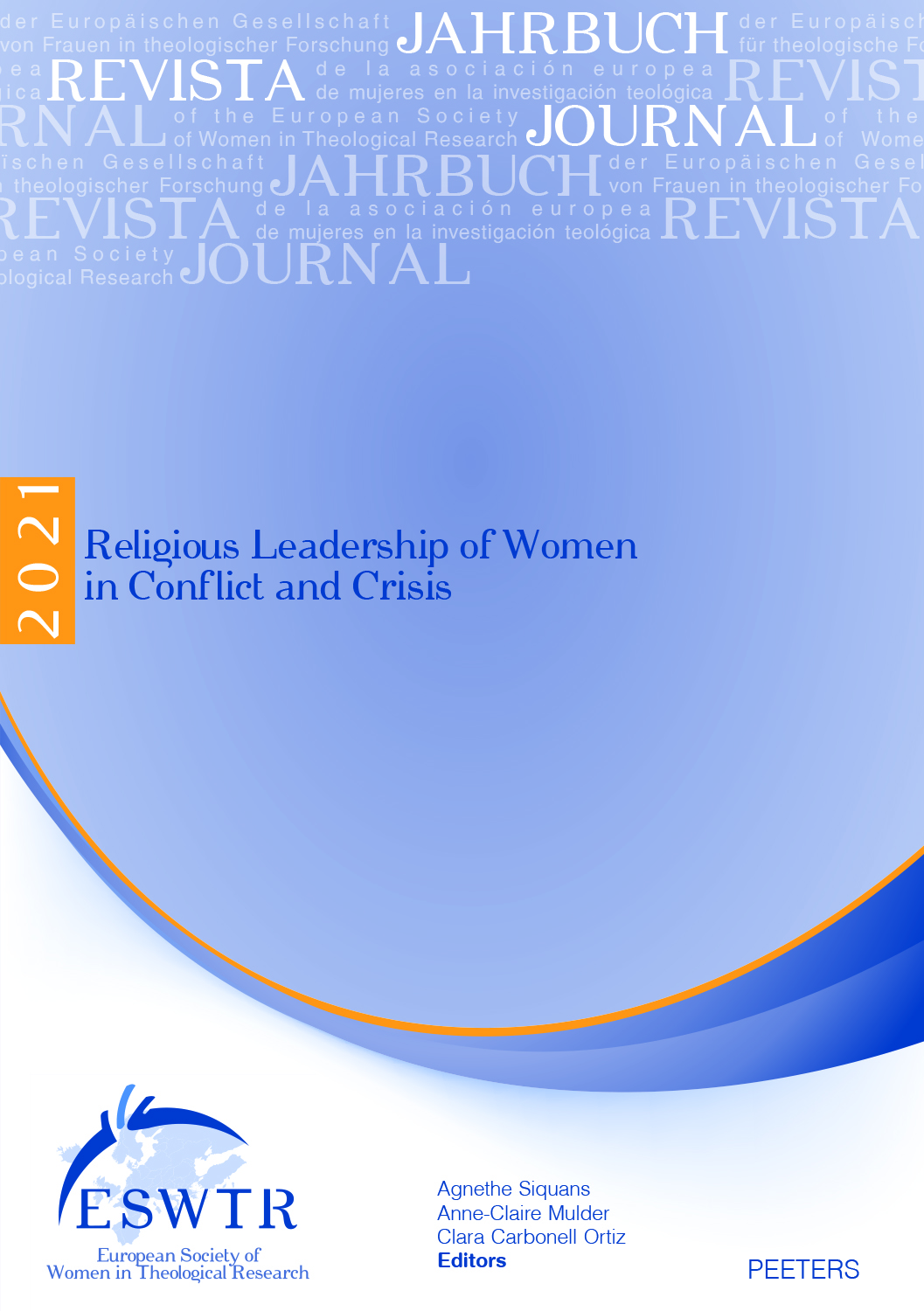 previous article in this issue previous article in this issue | next article in this issue  |

Preview first page |
Document Details : Title: Wenn aus Visionen gewaltfreier Widerstand wächst... Subtitle: Sozialethik im Gravitationsfeld von Mystik und Politik am Beispiel von Maria Skobtsova. Ein Werkstattbericht Author(s): STEINMAIR-PÖSEL, Petra Journal: Journal of the European Society of Women in Theological Research Volume: 23 Date: 2015 Pages: 85-100 DOI: 10.2143/ESWTR.23.0.3103633 Abstract : Anschließend an die Arbeiten von Marianne Heimbach-Steins aus den 1990er Jahren stellt das diesem Beitrag zugrundeliegende Forschungsprojekt die Hypothese auf, dass die Sozialethik durch eine Rückbindung an die Mystik in mehrfacher Weise profitieren könnte: hinsichtlich ihrer gesellschaftskritischen Scharfsichtigkeit, im Blick auf alternative Visionen für die institutionell-strukturelle Gestaltung des gesellschaftlichen Zusammenlebens, im Blick auf ihre existentiell motivierende Tiefendimension sowie hinsichtlich ihrer notwendigen gnadentheologischen Ausrichtung. Exemplarisch wird am Leben und Werk von Maria Skobtsova aufgezeigt, wie mystische Erfahrung zu widerständigen Lebensentwürfen führen und zu gesellschaftspolitischem Engagement motivieren kann. Im Fall von Skobtsova waren diese Erfahrungen so tiefgehend, dass sie zugunsten der Menschen, die ihre Hilfe brauchten, auch die letzte Konsequenz des (gewaltfreien) Widerstands, den eigenen Tod, in Kauf nahm. Following Marianne Heimbach-Stein’s earlier work from the 1990s, the research project on which this article is based argues that social ethics could profit from the connection with mysticism in several ways: with regard to their social acuity, to alternative visions for the institutional-structural formation of social coexistence, to their existential motivation and to their necessary orientation in the theology of grace. Maria Skobtsova’s life and work serve as a case study for how mystical experiences lead to models of life that pose resistance and motivate socio-political commitment. In Skobtsova’s case these experiences were so profound that she accepted her own death as a last consequence of her non-violent resistance in favor of persons who needed her. A raíz de los trabajos anteriores de Marianne Heimbach-Stein de la década de 1990, el proyecto de investigación en que se basa este artículo sostiene que la ética social podrían beneficiarse de la conexión con el misticismo de varias maneras: con respecto a su perspicacia social, visiones alternativas para la formación institucional-estructural de la convivencia social, a su motivación existencial y su orientación necesaria en la teología de la gracia. La vida y la obra de María Skobtsova sirven como un estudio de caso de cómo las experiencias místicas pueden conducir a modelos de vida que presentan resistencia y motivan el compromiso socio-político. En el caso de Skobtsova, estas experiencias fueron tan profundas que ella aceptó su propia muerte como última consecuencia de la resistencia no violenta en favor de las personas que la necesitaban. |
 |


